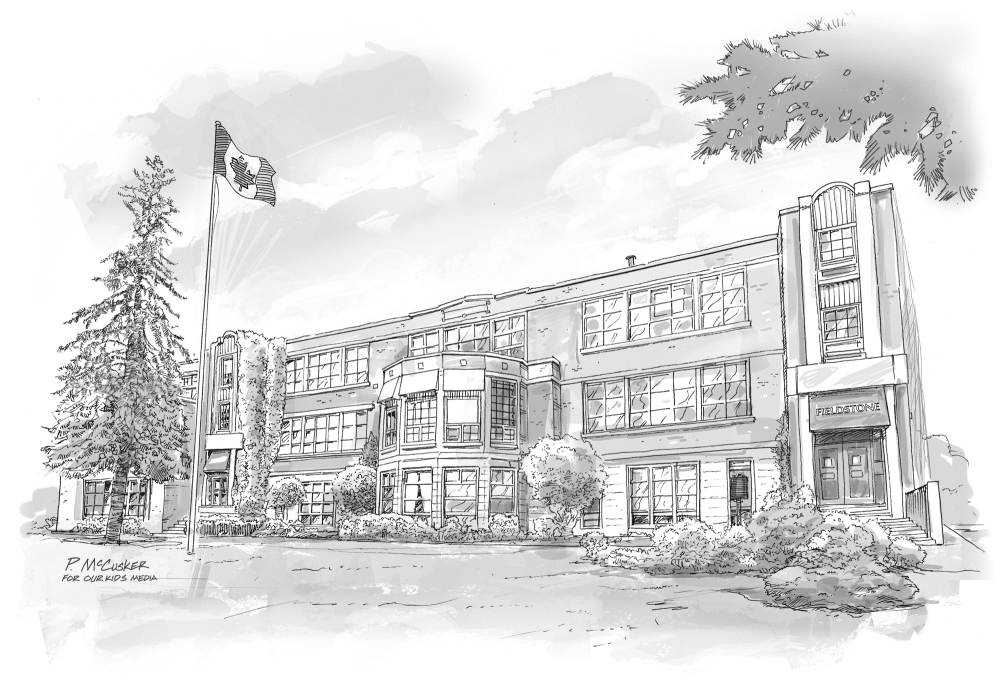

The regions Fieldstone offers busing from are:
How we see Fieldstone School
The 50-page review of Fieldstone School is part of our series of in-depth accounts of Canada's leading private schools. It provides a unique and objective perspective on the school's academics, programs, culture, and community.
Read our in-depth reviewCompare with:
How Fieldstone School sees itself
"Fieldstone is a small school with big school opportunities – large enough to provide a wealth of opportunities and small enough to support each student’s growth. As a Cambridge School, we teach a curriculum that sets the global standard for education designed to help students develop an informed curiosity and a lasting passion for learning."
"Our lower school students begin studying Cambridge English, Mathematics, and Science in Kindergarten and continue to Grade Eight. In the upper school, students continue their Cambridge studies through IGCSE and A Level programming while simultaneously earning credits towards their Ontario Secondary School Diploma (OSSD). Our signature Cambridge-Ontario Dual Programme provides students with limitless opportunities to extend their learning and achieve advanced standing in universities worldwide."
"• Internationally recognized Core Knowledge and Cambridge curricula
• House system that promotes bonding and mentorship between grade levels
• Music composition in Kindergarten leading to Violin instruction beginning in Grade One
• Annual Shakespeare Production involving all Junior Kindergarten to Grade Eight students
• Character Counts Programme
• Standardized international examinations
• After-school tutorials at no extra cost"



Gym.

Field.

Gym.




Music room.

Art classes take place in a spacious and well-equipped studio space.

Stage.



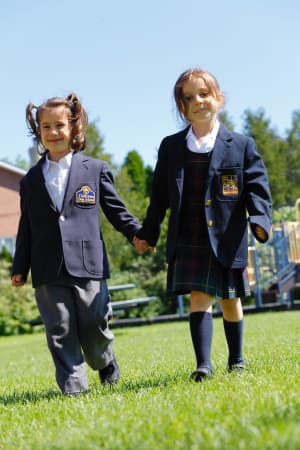
Our spacious field is perfect for strolling with friends.

Fieldstone Day School

Main entrance.



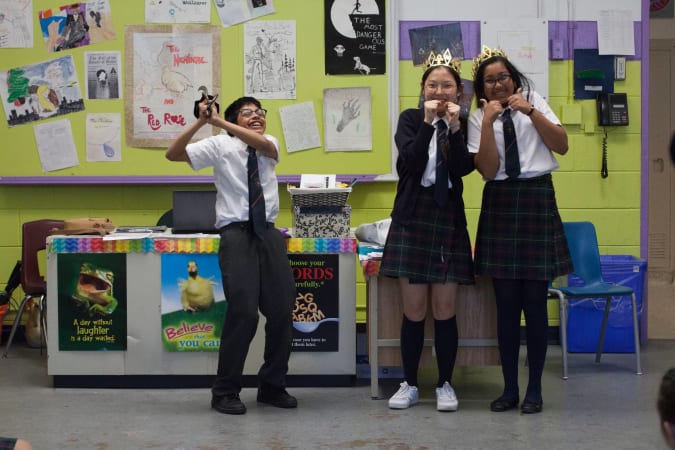
Our Colourful Drama Studio.
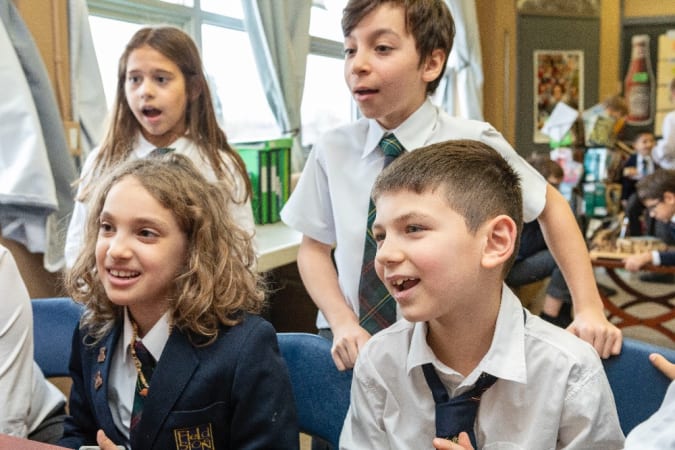
Grade Three students in a classroom.

Kindergarten Classroom.



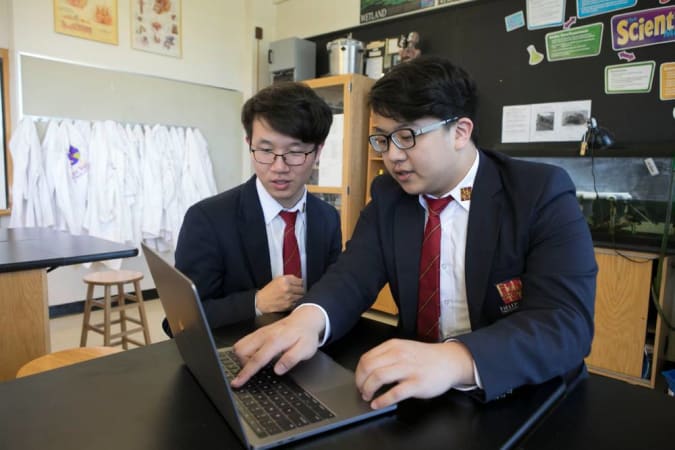
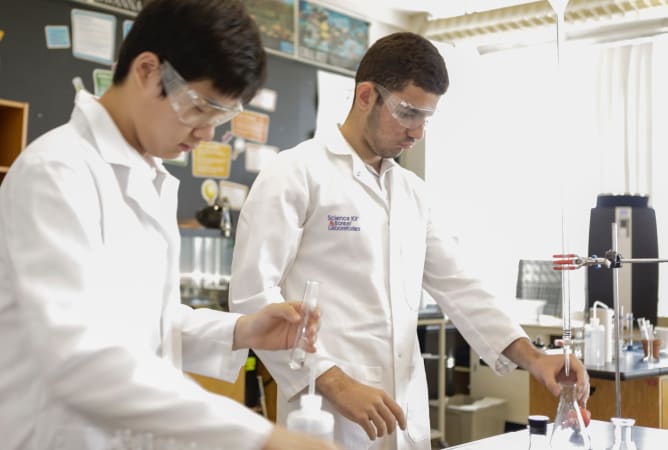
Our Science Lab is well equipped to support the interests and passions of our budding scientists.


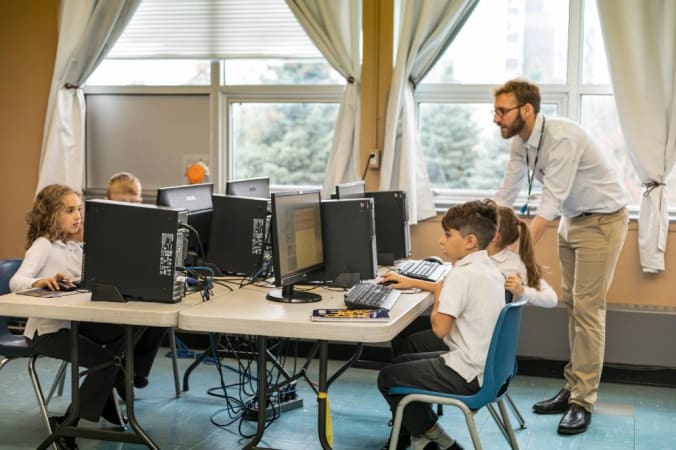
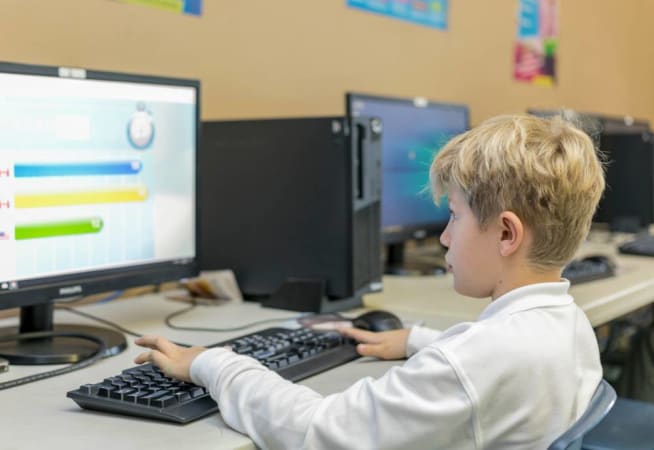
Well-equipped Computer Lab.

Spacious grounds for outdoor education and leisure.




Cafeteria.

Library.
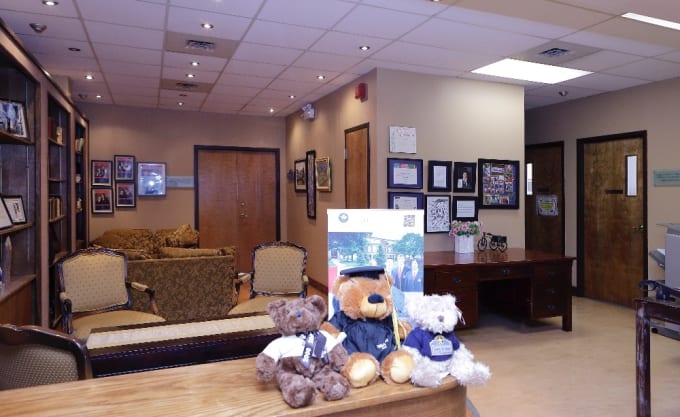
Main Office.





How people from the school’s community see Fieldstone School
Top-down influence on the school’s direction and tone
David Butcher, Director
Fieldstone was founded with two goals in mind. The first was to provide a strong foundation of knowledge upon which each student could build as they move into adult life. The second goal was to create a strong sense of self-worth and self-esteem within each student. The curriculum is used as a vehicle for accomplishing both of these goals. Students will grow in knowledge and self-confidence by being constantly challenged to achieve goals that appear to be slightly beyond their reach. Fieldstone students are presented with academic tasks that they may consider too difficult for themselves. With the guidance of their teachers in a caring and nurturing fashion, students find that indeed they can do what they thought they could not. As a result, their confidence grows and they willingly, in fact, eagerly accept new challenges.
At Fieldstone, we see not the child we meet, but rather who that child will become.
Most big schools provide your extroverted child with plenty of social opportunities and the ability to interact with different peer groups with a wide range of personalities, interests, values, etc. A larger student population and more extracurriculars—including activities like team sports, arts programs, and debate—will give them a broader scope of opportunities to participate in events that scratch their interpersonal itch. “This may also give them the opportunity to hone certain skills,” say Ann and Karen Wolff of Wolff Educational Services. “For instance, they might run for student council to develop leadership and public speaking skills and learn to be a voice for other students.”
Make sure any prospective school, no matter what size, provides the right social environment to help your child feel at home, make friends, and develop confidence. This is especially important at big schools, which are sometimes more socially overwhelming and challenging for an introvert to find their bearings in. Of course, “Because larger schools usually have a more diverse student population, introverted kids are more likely to find a small group of people like them, a peer group they can relate to and find acceptance from,” says Dona Matthews, Toronto-based education consultant and co-author (with Joanne Foster) of Beyond Intelligence.
Bigger schools often have a broader scope of extracurricular activities, which is another way to help your child meet the right group of friends. “This may also give them the opportunity to develop certain skills,” say Ann and Karen Wolff of Wolff Educational Services. “For instance, they might run for student council to develop leadership and public speaking skills and learn to be a voice for other students. Remember, though, each child is different—so what works for one may not work for another.”
THE OUR KIDS REPORT: Fieldstone School
Next steps to continue your research:
Continue researching Fieldstone School with OurKids.net, or visit school website.
